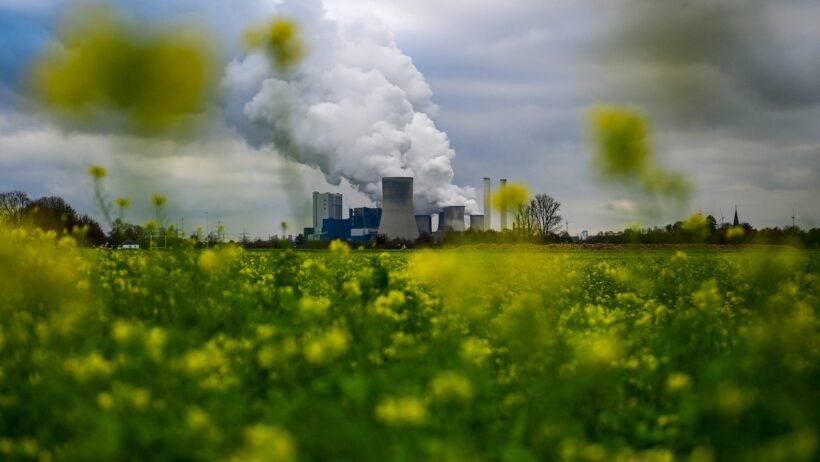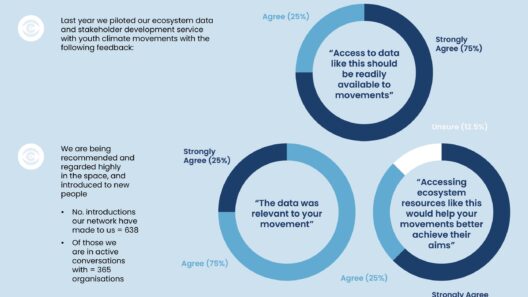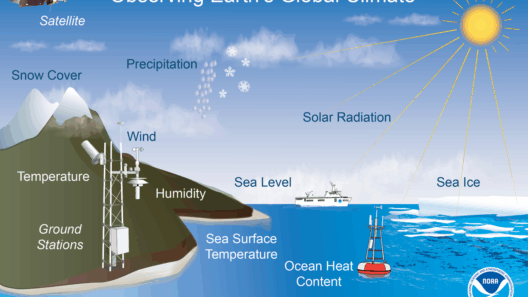Climate change has transcended from a distant concern into a palpable reality that influences our everyday lives in multifaceted ways. The impacts of this pervasive phenomenon can be observed in our environment, health, economy, and social structures. Understanding how climate change affects us daily is crucial for encouraging meaningful action and fostering resilience in our communities.
Each year, the evidence mounts—rising temperatures, erratic weather patterns, and heightened incidents of natural disasters are just the tip of the iceberg. With this backdrop, we delve into the various dimensions of climate change’s influence on our daily existence.
Environmental Degradation and its Implications
One of the most critical impacts of climate change is environmental degradation, which manifests itself in numerous ways, including biodiversity loss and habitat destruction. As the Earth warms, countless species struggle to adapt, leading to a breakdown in ecosystems that have thrived for millennia. This loss of biodiversity impacts agriculture, fisheries, and forestry—industries we rely on for food and resources.
Shifts in weather patterns result in altered growing seasons, which can lead to diminished agricultural output. For instance, the unpredictability of rainfall and temperature can affect crop yields, creating food insecurity in vulnerable populations. As we grapple with these changes, the agriculture industry must adapt to new best practices, including sustainable methods and climate-resilient crops, ensuring that our food systems remain viable.
Urban landscapes are equally susceptible to the ramifications of climate change. Increased heatwaves contribute to the urban heat island effect, where cities become significantly warmer than surrounding rural areas. This not only exacerbates energy consumption—as air conditioning becomes a necessity—but also affects public health. Vulnerable populations, particularly the elderly or those with preexisting conditions, face heightened risks during extreme temperature events.
Health Risks Coupled with Climate Change
Climate change is intrinsically linked to public health, presenting a myriad of challenges as environmental conditions evolve. Increased temperatures foster the proliferation of vector-borne diseases, such as malaria and dengue fever, as mosquitos and other carriers take advantage of warmer climates. This shift is not merely theoretical; regions that were previously inhospitable to such diseases are now witnessing outbreaks, threatening local populations.
Moreover, air quality is compromised as climate change exacerbates pollution levels. Smog and other pollutants can lead to respiratory illnesses and other chronic health conditions. Allergies, too, are on the rise; longer pollen seasons and increased concentrations of allergens have been linked directly to climate change. This progression places further burdens on public health systems, necessitating new strategies for health care and disease prevention.
Mental health, often an overlooked aspect of the climate dialogue, is also under siege. Natural disasters—hurricanes, floods, wildfires—leave in their wake not just physical destruction but profound psychological impacts. Survivors grapple with trauma, loss of homes, and displacement. The emotional toll can lead to increased rates of anxiety, depression, and post-traumatic stress disorder, necessitating community support systems for those affected.
Economic Ramifications and Adaptation
Beyond health and environmental concerns, climate change poses significant economic challenges. The costs associated with damage from natural disasters have escalated, influencing everything from insurance premiums to infrastructure investment. Governments must allocate resources for disaster response and recovery, diverting funding from other critical areas such as education and healthcare.
Industries reliant on stable weather conditions—including agriculture, tourism, and outdoor recreation—are feeling the burden of climate variability. For example, ski resorts face declining snowfall, directly impacting local economies dependent on winter sports tourism. Similarly, rising sea levels threaten coastal communities and businesses, urging a reevaluation of economic strategies and resilience planning.
On an individual level, the financial implications of climate change ripple through to consumer behavior. As certain products become scarce or require sustainable sourcing, prices may rise. Energy costs are also influenced by climate-related regulations, pushing consumers to adapt by seeking more energy-efficient appliances and transportation options.
The Importance of Collective Action and Personal Responsibility
While the challenges posed by climate change may seem daunting, addressing this global crisis begins at the individual and community levels. Increased awareness and advocacy are essential. By educating ourselves and others about climate impacts, we can galvanize collective efforts towards mitigation and adaptation strategies.
Individuals can make meaningful choices that contribute to the solution—reducing waste, conserving energy, and supporting sustainable products. Furthermore, advocating for policies that prioritize environmental health is crucial. Engaging with local representatives and promoting community initiatives fosters an environment where climate action is prioritized.
Combatting climate change requires unwavering commitment and collaboration among governments, businesses, and individuals. Each decision we make can either mitigate or exacerbate the impacts of climate change. By staying informed and proactive, we contribute to a world that prioritizes sustainable practices and resilience, ensuring a healthier planet for future generations.
In conclusion, climate change affects us every day, weaving itself into the fabric of our lives. From our environment to our health, economy, and beyond, the implications are multifaceted and profound. Understanding these impacts is the first step toward fostering an informed society prepared to tackle the challenges ahead.







